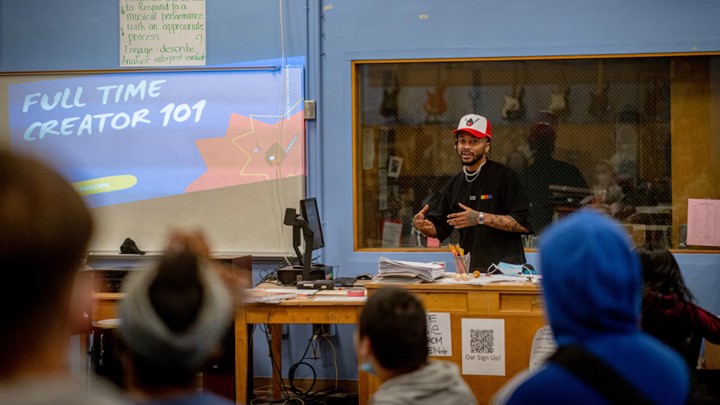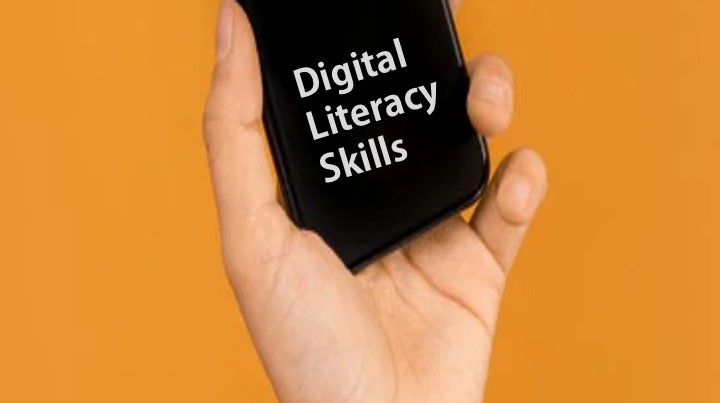So you’re passionate about how to become a technology teacher, and you secretly (or not-so-secretly) want to use your expertise to inspire a new generation. Perhaps you enjoy tinkering with robots in your spare time, or you are the local computer expert on whom everyone depends.
Teaching on its own is a noble job, and becoming a technology teacher may be a great way for you to impact the world around you. We are committed to helping you grow your career, which is why we wrote a blog on gold teaching strategies that will be of help to you.
Meanwhile,
In this blog, we will not just walk you through the route to how to become a technology teacher and a successful technology educator; we will also show you the role’s duties and how to obtain practical experience and promote professional growth in the education field.
First, let us look at the roles of teachers.
The Role of a Technology Teacher
A technology teacher’s responsibilities are diverse due to the rapid evolution of technology. Technology instructors play an important role in educating students for success in the digital age, covering anything from computer science and coding to digital literacy and technology integration.
Technology instructors use hands-on learning activities to stimulate curiosity, creativity, and critical thinking in K–12 classrooms, vocational programs, and adult education settings alike.
How to Become a Technology Teacher
1. Assessing Qualifications and Skills
To begin the process of becoming a technology teacher, it is critical to analyze the credentials and abilities required for the position. While educational requirements differ by school and locale, a solid background in technology and education is essential. In addition to technical expertise, excellent communication, problem-solving abilities, and a desire to educate are required for success in the area.
No matter if you’re a recent graduate or transferring from another field, developing these skills can help you prepare for the difficulties and rewards of technology education. You may wish to know the difference between B.Sc. and B.Sc. Ed., this is a popular article in our blog that clears up a lot of confusion.
2. Pursuing Relevant Education and Training
After you’ve evaluated your qualities and talents, it’s time to pursue the appropriate education and training to become a technology teacher. Many colleges offer technology-focused education degree programs, which include coursework in curriculum creation, instructional technology, and educational psychology. You can learn more about education degrees here.
Furthermore, specialist training programs and certifications, such as Google Certified Educator or Microsoft Innovative Educator, can help you advance your knowledge and credentials in technology teaching. By investing in your education and professional development, you will learn the information and skills required to succeed as a technology teacher.
3. Gaining Teaching Experience
While formal education and training are required, hands-on teaching experience is also beneficial in preparation for a job as a technology teacher. Seek out opportunities to engage with students in classroom settings through internships, practicums, or volunteer programs. Learn how to find online teaching jobs here.
You can start by supporting a technology teacher in a school environment or running coding workshops in the community, these experiences will give vital insights into classroom management, lesson design, and student participation. Accept the opportunity to learn from experienced educators and work with colleagues to improve your teaching techniques and approach.
4. Building a Professional Network
Building a professional network can help you succeed while you pursue a career as a technology instructor. Connect with other technology teachers, educators, and professionals in the sector via professional organizations, conferences, and online forums. Joining organizations like the International Society for Technology in Education (ISTE) or engaging in Twitter discussions about education and technology can give chances for networking, cooperation, and professional development.
Building meaningful connections and exchanging experiences with other educators can provide you with invaluable insights and support throughout your career.
5. Exploring Career Opportunities
With a strong foundation in education and technology, prospective technology teachers can pursue a wide range of job prospects. Technology instructors may have an impact in a variety of educational contexts, including traditional K-12 schools, vocational programs, community colleges, and corporate training.
Consider researching specific areas of technological education, such as robotics, cybersecurity, or digital media, to better match your interests and skills with employment prospects. If you want to inspire future programmers, designers, or inventors, technology education offers a fulfilling professional path.
6. Embracing Technology in Teaching Practices
As a technology teacher, incorporating technology into your teaching strategies is critical for engaging and empowering students throughout their learning journey. Integrate digital tools, resources, and multimedia material to create interactive and immersive learning experiences that accommodate a variety of learning styles and abilities.
From coding platforms and instructional applications to virtual reality simulations and online collaboration tools, use technology to pique your students’ interest, stimulate creativity, and develop critical thinking abilities. Accept new teaching methods like project-based learning, flipped classrooms, and gamification to make learning enjoyable and relevant for your students.
7. Fostering Professional Growth and Advancement
Continuous professional development and progress are critical for being current and effective as a technology instructor. Take advantage of possibilities for further professional growth, such as attending conferences, workshops, or online courses. Pursue postgraduate degrees or certifications to improve your skills in particular areas of technology education and position yourself for leadership or higher levels of responsibility.
Stay current on industry developments, research results, and best practices in technology education to enrich your teaching tactics and improve student learning outcomes. Embracing a growth attitude and engaging in your professional development will allow you to improve and thrive as a technology teacher throughout your career.
Final Thoughts
Remember, becoming a technology teacher isn’t just about possessing technical know-how. It’s about fostering a love for learning, igniting curiosity, and empowering your students to become the tech wizards of tomorrow. With the right preparation, a dash of patience, and a whole lot of passion, you can turn your dream into a reality.
So, are you ready to embark on this exciting adventure? This guide has equipped you with a roadmap on how to become a technology teacher. Now, it’s your turn to start tinkering, learning, and inspiring! We have an article dedicated to how to become a coding teacher. Go read it now.







